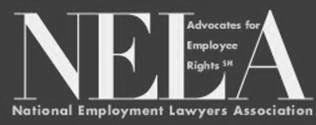Unpaid Internships – Are You on the Right Side of the Law?
It’s Tamika Sykes. Your Legal Gladiator. Because I am an employment lawyer, I receive questions from employees, business owners, and other attorneys asking about the differences between an employee and an independent contractor. Many times, I have to explain that depending on the job functions and work expectations that an independent contractor could actually be an employee under wage and hour laws and (gasp!) tax laws.
Now a new question arises. Whether an intern is entitled payment as an employee?
Although there have historically been rules to govern whether an internship can be treated as unpaid by an employer, little if anything has been done to enforce these in past years, something the Obama administration hopes to address. In April of this year, the Wage and Hour Division of the U.S. Department of Labor issued a set of guidelines to help businesses determine whether an internship program should include financial compensation. Only if all of the following six criteria are met by for-profit private sector businesses are they within their rights to treat internships as unpaid; otherwise they are liable to pay at least minimum wage plus overtime for any hours worked in excess of 40 per week.
- The internship, even though it includes actual operation of the facilities of the employer, is similar to training that would be given in an educational environment.
- The internship experience is for the benefit of the intern.
- The intern does not displace regular employees but works under close supervision of existing staff.
- The employer that provides the training derives no immediate advantage from the activities of the intern, and on occasion its operations may actually be impeded.
- The intern is not necessarily entitled to a job at the conclusion of the internship.
- The employer and the intern understand that the intern is not entitled to wages for the time spent in the internship.
Why is this important? If you are an employee, you may be owed unpaid wages. Conversely, if you are an employer you may be responsible for unpaid wages and owe a tax debt to the IRS. If you have additional questions, contact Your Legal Gladiator Tamika Sykes at (404) 870-8410 and visit www.sykeslawllc.com.
The post Unpaid Internships – Are You on the Right Side of the Law? appeared first on Sykes Law.








